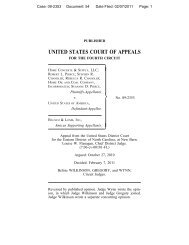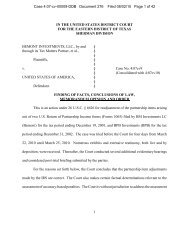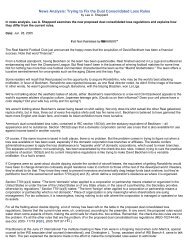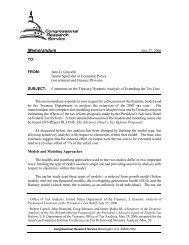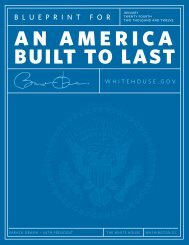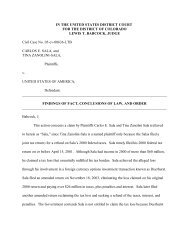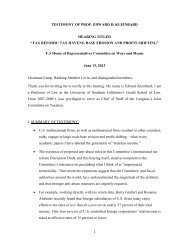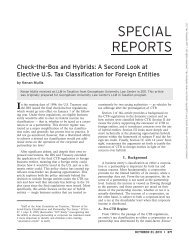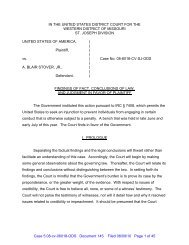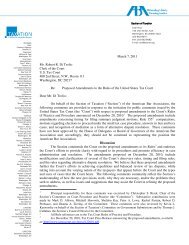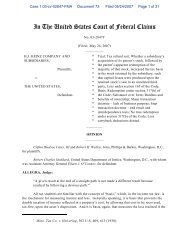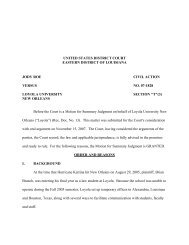United States' Motion to Exclude Expert Testimony of Plaintiffs'
United States' Motion to Exclude Expert Testimony of Plaintiffs'
United States' Motion to Exclude Expert Testimony of Plaintiffs'
- No tags were found...
You also want an ePaper? Increase the reach of your titles
YUMPU automatically turns print PDFs into web optimized ePapers that Google loves.
The background for the rules allowing reliance on advice <strong>of</strong> counsel in all <strong>of</strong> theasserted penalties is the 1985 Supreme Court decision in Boyle, which interpreted thepenalty provisions under prior law. (The provisions were reorganized and rationalizedin 1989, but the relevant substantive rules allowing reliance on tax advice remainsubstantially the same.) In that case, the taxpayer filed a late return because <strong>of</strong> a clericalerror by his tax counseL. The IRS asserted penalties for late filng, and the taxpayer, Mr.Boyle, objected relying on a reasonable cause exception. While the Court held thatBoyle could not reasonably rely on counsel for failure <strong>to</strong> fie a timely return, in othercases reliance on counsel would be plainly reasonable. The Court held:When an accountant or at<strong>to</strong>rney advises a taxpayer on a matter <strong>of</strong> tax law, such aswhether a liabilty exists, it is reasonable for the taxpayer <strong>to</strong> rely on that advice.Most taxpayers are not competent <strong>to</strong> discern error in the substantive advice <strong>of</strong> anaccountant or at<strong>to</strong>rney. To require the taxpayer <strong>to</strong> challenge the at<strong>to</strong>rney, <strong>to</strong> seeka "second opinion," or <strong>to</strong> try <strong>to</strong> moni<strong>to</strong>r counsel on the provisions <strong>of</strong> the Codehimself would nullfy the very purpose <strong>of</strong> seeking the advice <strong>of</strong> a presumedexpert in the first place.469 U.S. 241, 252 (1985).The Supreme Court's rule allowing taxpayers <strong>to</strong> rely on pr<strong>of</strong>essional tax advice<strong>to</strong> avoid penalties makes sense. It is not practical <strong>to</strong> expect all, most, or even very manytaxpayers <strong>to</strong> be schooled in the various arcane details <strong>of</strong> the law. Instead, we encouragespecialization <strong>of</strong> this knowledge in tax pr<strong>of</strong>essionals and allow others <strong>to</strong> rely on thisspecialization. The rules attempt <strong>to</strong> ensure that reliance on such specialized advice isreasonable, that there are no warning signs that a non-expert should be expected <strong>to</strong>notice. But in the absence <strong>of</strong> warning signs, taxpayers exercising ordinary caseroutinely and reasonably rely on the advice <strong>of</strong> tax experts.Based on this reasoning, each <strong>of</strong> the asserted penalties allows taxpayers <strong>to</strong> avoidthe penalty based on reasonable reliance on the advice <strong>of</strong> tax experts. The particularstandards for reliance vary for each <strong>of</strong> the penalties based on the reasons for theimposition <strong>of</strong> the particular penalty.1. Negligence.4



